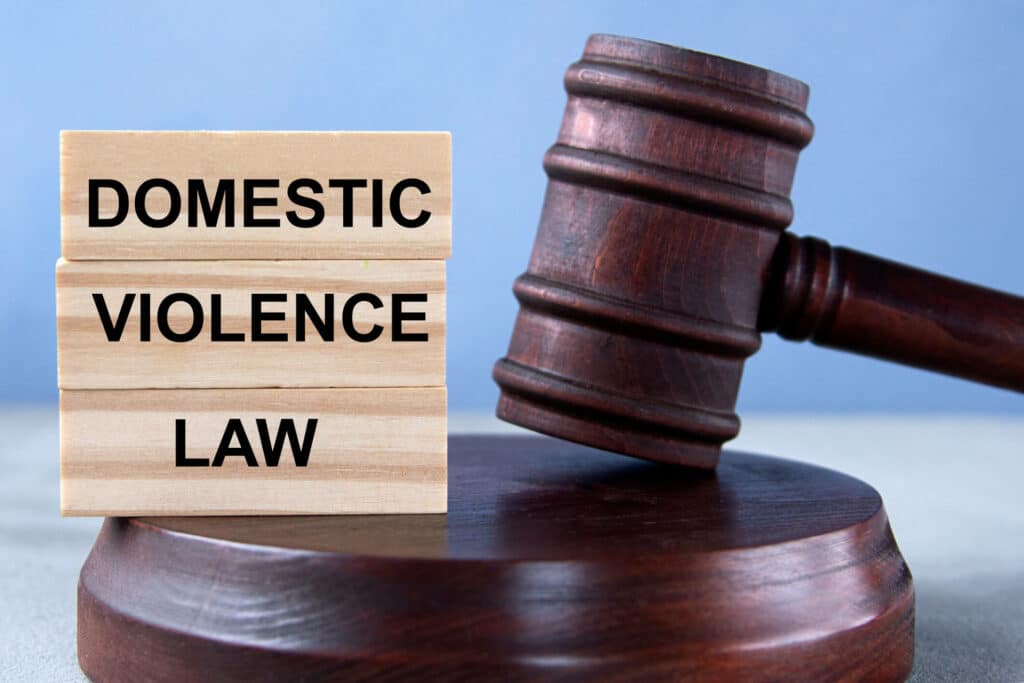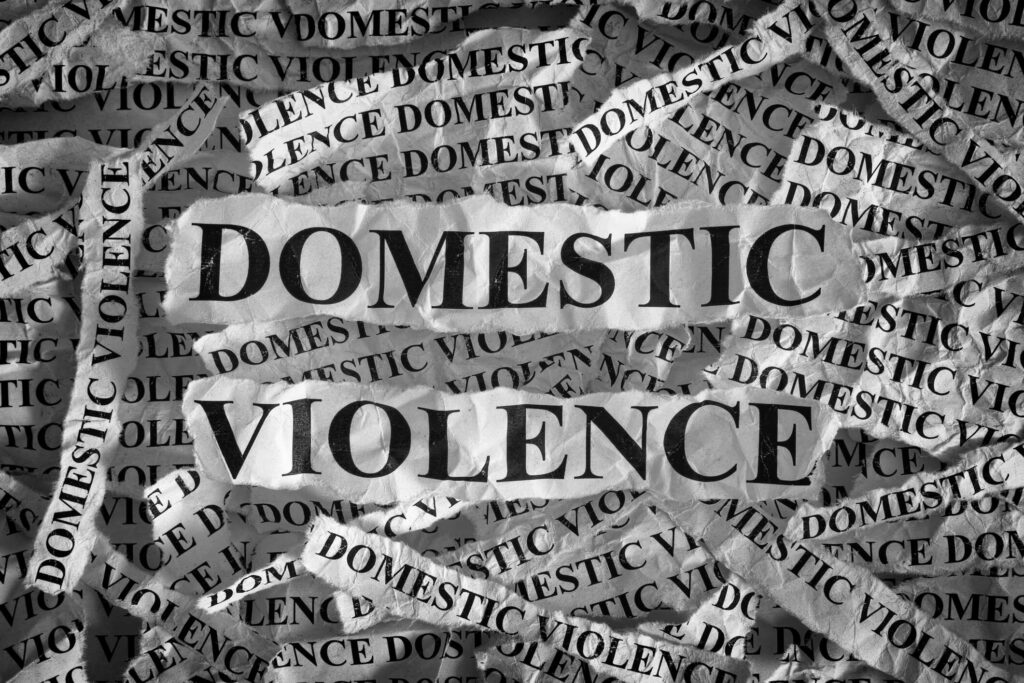Domestic violence is a serious issue that affects countless individuals and families worldwide. In Nevada, like many other states, the legal system takes domestic violence allegations seriously. However, circumstances may arise where individuals involved in such cases may wonder if domestic violence charges can be dropped. In this blog, we will explore the legal landscape in Nevada and the factors that may influence whether or not domestic violence charges can be dropped.
Understanding Domestic Violence Laws in Nevada
In Nevada, domestic violence constitutes a criminal offense committed by one family or household member against another, involving individuals such as spouses, former spouses, dating partners, or cohabitants. Common charges linked to domestic violence in Nevada include domestic battery, assault, and coercion.
Upon the formal filing of charges, the legal process is initiated. It is crucial to note that the ability to dismiss charges does not rest solely with the alleged victim. Even if the victim no longer wishes to proceed with the case, the prosecution retains the authority to pursue the charges. This underscores that the decision to pursue or dismiss charges ultimately lies with the prosecuting authorities once legal proceedings commence.

Factors That Can Influence Dropping Charges
Several factors can influence the decision to drop domestic violence charges in Nevada. While the desire of the alleged victim to withdraw the charges is a significant consideration, the final decision rests with the prosecution. Here are key factors that may influence the decision to drop charges:
1. Victim’s Wishes
While the alleged victim’s wishes to dismiss charges are taken into account, it’s essential to note that the prosecutor is not obliged to follow the victim’s decision. The state maintains the discretion to proceed with the case, especially if there is significant evidence supporting the charges or concerns about the safety of the victim, particularly in cases involving intimidation or coercion. This highlights the legal intricacies at play, where multiple factors beyond the victim’s stated desires shape the prosecutor’s decision.
2. Insufficient Evidence
The probability of charges getting dismissed hinges on the strength of the evidence. The prosecution might dismiss the charges if there’s a lack of compelling evidence to support the accusations. This deficiency in evidence can take different forms, including the absence of eyewitnesses, weak physical evidence, or inconsistencies in the statements provided by the alleged victim. When faced with such inadequacies, the prosecution may encounter difficulties constructing a solid case, potentially prompting a decision to dismiss the charges against the accused.
3. Cooperation of Witnesses
The collaboration of witnesses, particularly the alleged victim, is essential in legal proceedings. If crucial witnesses, including the alleged victim, are reluctant or unwilling to testify or provide information, it can significantly undermine the prosecution’s case. This lack of cooperation may expose vulnerabilities, diminishing the overall strength of the case. In specific scenarios, the prosecutor might be prompted to reevaluate the viability of pursuing charges if essential witnesses decline to cooperate. This underscores the pivotal role that witness cooperation plays in the legal process.
4. Defense Strategies
The possibility of charges being dismissed is closely linked to the defense’s approach and the strength of the case presented by the accused. If the defense can successfully present evidence contradicting the prosecution’s version or casting doubt on witness credibility, there is a substantial chance that the prosecution will reassess the viability of pursuing the charges. In essence, the effectiveness of the defense in challenging the prosecution’s arguments plays a crucial role in determining the course of legal proceedings and impacting the final decision on whether to proceed with the charges or dismiss them.
5. Counseling or Treatment
In certain domestic violence cases, the court may consider alternatives to the typical legal consequences. If the defendant willingly participates in counseling or undergoes treatment programs, demonstrating a sincere commitment to addressing the underlying issues associated with the alleged domestic violence, the prosecution might be open to negotiating a resolution outside the scope of criminal charges. This approach recognizes the potential for rehabilitation and underscores the significance of addressing the root causes of the purported misconduct, providing a more rehabilitative path to resolve the matter.
6. Prior Criminal Record
The accused’s past criminal record significantly influences the handling of domestic violence charges. A history involving domestic violence or related offenses can diminish the chances of charges being dismissed, highlighting a recurring pattern of concerning behavior. Conversely, a clean record serves as a crucial factor in the defense’s favor, offering grounds for leniency or dismissal. The absence of previous offenses can be presented as evidence of the accused’s good character, potentially swaying the court’s perspective on the case and heightening the possibility of a favorable resolution.
7. Impact on the Victim
The prosecution may assess the impact of the alleged domestic violence on the victim. If the victim insists on dropping charges and there is evidence that the incident was isolated or a result of a misunderstanding, the prosecution may be more receptive to considering a resolution that does not involve formal charges.
In conclusion, the decision to drop domestic violence charges in Nevada is complex and involves a careful consideration of various factors. Seeking legal counsel is crucial for individuals facing such charges, as a skilled attorney can navigate the legal landscape and advocate for the most favorable outcome based on the specific circumstances of the case.
Self-Defense Claims in Domestic Violence Cases
Self-defense claims in domestic violence cases add complexity to the legal landscape, delving into the intricacies of personal safety and the right to protect oneself. Individuals facing domestic violence charges assert that their actions were a direct response to an imminent threat, aiming to safeguard their well-being or that of others.
The concept of self-defense hinges on the fundamental principle that individuals have the right to protect themselves from harm. To establish a valid claim, it must be shown that the force used was necessary and proportionate to the perceived threat. This involves a thorough examination of the circumstances leading to the incident, including the nature of the threat, the immediacy of danger, and the reasonable belief that force was the sole means of preventing harm.
Courts assess key elements when evaluating self-defense claims in domestic violence cases:
1. Imminent Threat –The accused must reasonably believe they were facing an immediate threat of harm.
2. Proportionality – The force used must be proportionate to the perceived threat.
3. Reasonable Belief – The defendant must have had a reasonable belief that force was necessary for protection.
4. No Duty to Retreat – Some jurisdictions allow individuals to stand their ground without retreating if legally present.
In emotionally charged domestic violence cases, establishing a valid self-defense claim is challenging. Courts consider the totality of circumstances, including any history of abuse or threats, to assess the reasonableness of the defendant’s actions.
Individuals relying on self-defense claims must collaborate closely with defense attorneys. Attorneys play a crucial role in gathering evidence, constructing a compelling narrative, and advocating for their clients’ rights. They may explore alternative strategies, such as presenting evidence of the alleged victim’s prior violent behavior or challenging the prosecution’s version of events.
In essence, self-defense claims in domestic violence cases highlight the delicate balance between protecting individuals from harm and ensuring justifiable responses within the legal boundaries. Successful navigation of this legal aspect requires a comprehensive understanding of the incident’s specific circumstances and a strategic approach to presenting a compelling defense.

Evidence Requirements for Dropping Charges
The process of dropping charges involves a meticulous assessment of various factors, particularly the evidentiary aspects of the case. For charges to be dropped, certain evidence requirements must be met. These include:
1. Insufficiency or Weakness of Evidence – Charges may be dropped if there is a lack of substantial evidence to prove the case beyond a reasonable doubt.
2. Inconsistencies in Witness Testimonies – Contradictions or inconsistencies in witness statements can raise doubts about the reliability of the evidence.
3. Victim’s Lack of Cooperation – The cooperation of the alleged victim is crucial, and if they express a desire to drop charges, it can impact the case.
4. Exculpatory Evidence – The discovery of evidence favoring the defendant, such as alibis or contradictory information, can prompt a reevaluation.
5. Legal Defenses – Strong legal defenses, like self-defense or lack of intent, supported by evidence can lead to a reconsideration of charges.
6. Witness Recantation – Witnesses retracting previous statements can create doubts about the reliability of the evidence.
7. Cooperation with Court-Ordered Programs – Completion of court-ordered programs may be considered as a positive step, potentially influencing the decision to drop charges.
8. Review of Police Conduct – Allegations of misconduct during arrest or investigation can impact the admissibility of evidence.
9. Collaboration with the Defense – Open communication between the prosecution and defense, along with compelling defense arguments or evidence, can prompt a reassessment.
In essence, the evidence requirements for dropping charges encompass a nuanced evaluation of the strength and reliability of the prosecution’s case, with considerations for witness cooperation, legal defenses, and the overall credibility of the evidence presented.

Role of the Victim in Dropping Charges
The role of the victim in the decision to drop charges is a crucial and complex aspect of legal proceedings. While it’s commonly assumed that the victim has the power to unilaterally drop charges, the reality is more nuanced. In many jurisdictions, including Nevada, the final decision rests with the prosecuting authorities. However, the victim’s cooperation and wishes can significantly influence this decision. If the alleged victim expresses a desire to drop charges, it may lead to a reevaluation of the case by the prosecution.
Factors such as the victim’s willingness to testify and provide evidence play a pivotal role. Yet, prosecutors may proceed with charges even against the victim’s wishes if there is sufficient independent evidence. The victim’s role in dropping charges underscores the delicate balance between individual autonomy and the state’s responsibility to address and prevent criminal conduct.
Impact of Restraining Orders on Charges
Restraining orders play a pivotal role in shaping the trajectory of criminal charges, particularly in cases involving domestic violence or harassment. When a restraining order is issued, it typically mandates the accused party to maintain a specified distance from the alleged victim and refrain from any form of contact. The issuance of a restraining order can have a substantial impact on the related criminal charges. It serves as a legal barrier designed to protect the victim and may be viewed by the prosecution as an additional layer of evidence supporting the allegations. Violating a restraining order can lead to separate legal consequences, potentially exacerbating the severity of the charges.
Conversely, a defense strategy may involve challenging the validity or necessity of the restraining order, aiming to create reasonable doubt regarding the alleged threat or danger posed by the accused. In essence, restraining orders become integral components in the intricate interplay between legal proceedings and the protection of individuals involved in criminal cases, influencing the nature and potential outcomes of charges.One possible factor that can significantly affect domestic violence charges is the defendant’s plea, which can lead to either the charges being dropped, reduced, reduced, or the case going to trial.
Conclusion
Navigating domestic violence charges in Nevada can be complex, and the outcome depends on various factors. While the alleged victim’s wishes are considered, the final decision lies with the prosecution. Working with an experienced attorney is crucial in building a strong defense and exploring options that may lead to the charges being dropped. It’s essential for individuals facing domestic violence charges to seek legal advice promptly to understand their rights and options within the legal system.
FAQs
Here are some frequently asked questions about domestic violence charge:
Q. Can Domestic Violence Charges Be Pled Down?
In domestic violence legal proceedings, pursuing the option of having charges “dismissed” is crucial for defendants. Dismissal, achieved through negotiation between the defense and prosecution, terminates charges and can result in a resolution with fewer penalties. The feasibility of dismissal depends on factors like evidence strength, incident circumstances, and the cooperation of all parties, including witnesses. Consulting with an experienced attorney is essential for those facing domestic violence charges, as a skilled domestic violence defense attorney can assess the case details, devise effective legal strategies, and negotiate with prosecutors for the best possible outcome.
Q. Is it possible to have domestic violence charges dismissed without going to trial?
Yes, it is possible to have domestic violence charges dismissed without going to trial. The dismissal may occur at various stages of the legal process, often due to factors such as insufficient evidence, the cooperation of the alleged victim, successful defense arguments, or alternative resolutions like counseling or mediation. Prosecutors have discretion in deciding whether to proceed with a case, and if the circumstances warrant, they may choose to dismiss charges before reaching trial. Seeking legal advice promptly and working closely with an experienced attorney can increase the chances of achieving a favorable outcome, potentially leading to the dismissal of domestic violence charges.
Q. Are there any alternatives to dropping the charges, such as plea deals or diversion programs?
Yes, in many legal systems, there are alternatives to dropping charges that aim to provide resolutions without going through a full trial. Plea bargaining involves the accused pleading guilty to a lesser charge in exchange for a less severe punishment. Diversion programs offer rehabilitation or education instead of traditional prosecution, allowing individuals to address underlying issues contributing to their actions. These alternatives can be considered by the prosecution and defense as ways to achieve a resolution that balances accountability and rehabilitation without proceeding to trial.
Q. Do I need a lawyer to have domestic violence charges dropped?
While it’s not a strict requirement, having a lawyer is highly advisable when seeking to have domestic violence charges dropped. Navigating the legal complexities involved in dropping charges requires expertise and knowledge of the legal system. A skilled defense attorney can assess the specific details of your case, strategize the best course of action, and negotiate with the prosecution on your behalf. They can identify potential weaknesses in the prosecution’s case, present compelling evidence, and advocate for your interests. A lawyer’s guidance is crucial in increasing the likelihood of a favorable outcome and ensuring your rights are protected throughout the legal process.
Q. What are the potential consequences if domestic violence charges cannot be dropped?
If domestic violence charges cannot be dropped, the potential consequences can be significant and multifaceted. The accused may face legal repercussions, including a criminal conviction, fines, and potential jail time. A conviction for domestic violence can also have long-term consequences, such as damage to one’s reputation, limitations on future employment opportunities, and strained personal relationships. Additionally, the court may impose protective orders or restraining orders, restricting contact with the alleged victim. In some cases, mandatory counseling or anger management programs may be required as part of probation. The severity of consequences varies based on factors such as the specific charges, the presence of aggravating circumstances, and the legal strategies employed in the defense. Seeking legal counsel promptly is crucial to navigate the legal process and work towards minimizing the potential fallout of domestic violence charges. In order to protect the rights of those who may be innocent, it is important to explore the possibility of having domestic violence charges dropped.
Q. What if the Victim Doesn’t Want to Press Charges
In cases where the victim is unwilling to press charges, the decision to pursue legal action rests largely with the prosecuting authorities. While the victim’s wishes are considered, prosecutors may choose to proceed with charges if there is sufficient evidence to support the case independently. The state often takes domestic violence cases seriously, and factors such as the severity of the alleged offense and the risk to public safety can influence the decision to prosecute, even against the victim’s wishes. However, the victim’s cooperation can play a significant role in the outcome, and in some instances, the lack of cooperation may lead to challenges in building a strong case. The dynamics surrounding the victim’s involvement or reluctance to press charges are crucial considerations in the overall legal process.
Hire a Domestic Violence Attorney In Las Vegas
If you find yourself entangled in domestic violence or any violent crimes cases in Las Vegas, it’s crucial to choose the right domestic violence lawyer. Lipp Law LLC, a renowned criminal defense lawyer in Las Vegas, Nevada, specialize in navigating the complexities of domestic violence cases. With a commitment to protecting your rights and ensuring a fair legal process, their experienced team of attorneys can provide invaluable assistance. Whether you’re facing charges or seeking guidance on a domestic violence matter, hiring a dedicated domestic violence attorney from this reputable firm can make a significant difference in your case’s outcome.
Trust in their expertise to navigate the legal intricacies and work towards the best possible resolution for your situation.







